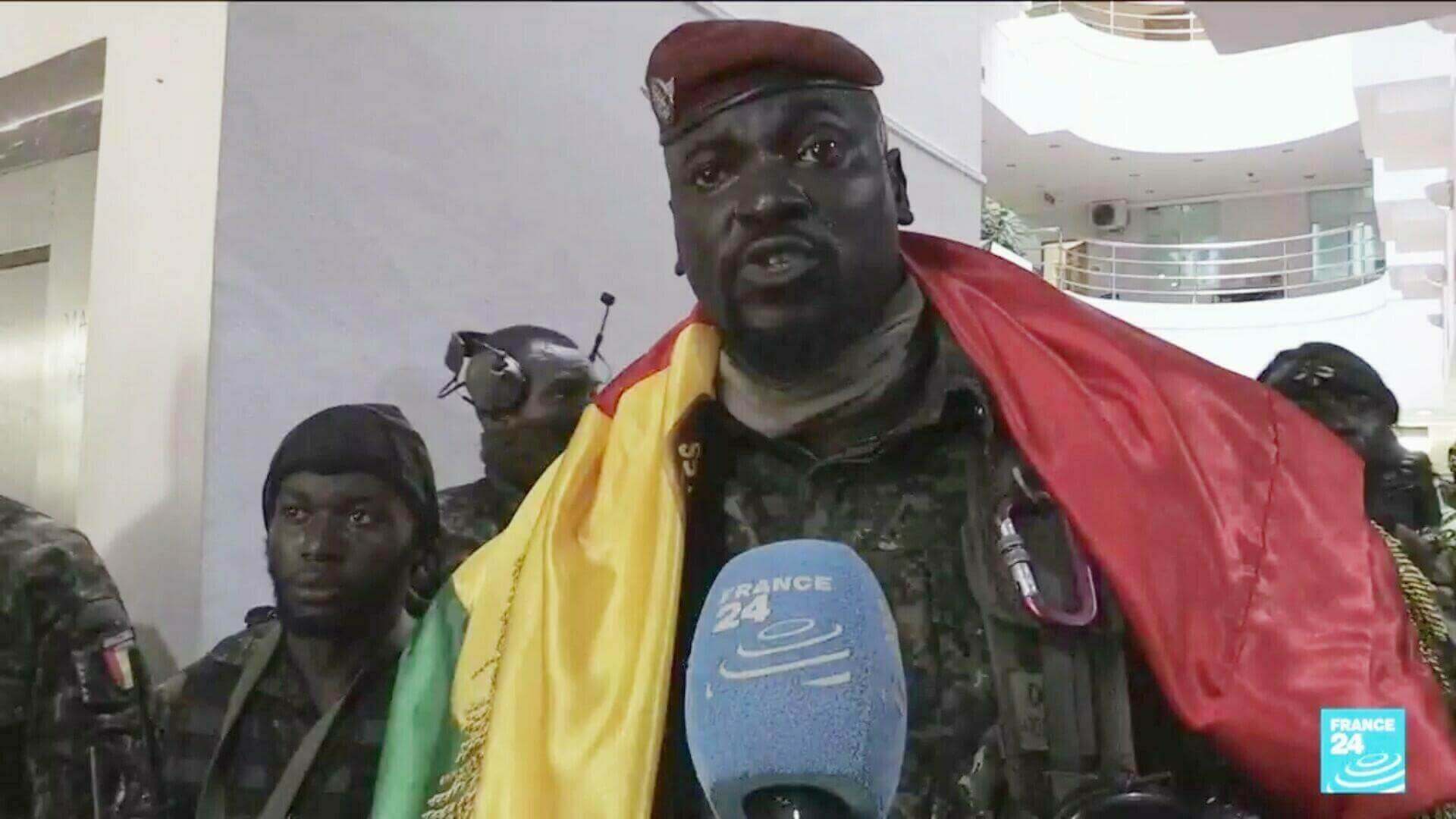On Sunday, the leader of the Guinean army’s Special Forces Group, Lieutenant Colonel Mamady Doumbouya, led a coup to depose President Alpha Condé and dissolve his government. Condé, who has been in power since December 2010, has now been detained and arrested by the junta, who call themselves the National Committee for Rally and Development (CNRD).
Condé was taken into custody following a period of gunfire on early Sunday, with three security forces allegedly killed during the attack.
Immediately following the capture of Condé, Doumbouya announced in a speech: “We decided, after seeing the President—who is with us—to dissolve the current constitution, dissolve the government and close the land and air borders.” He reasoned that the CNRD was forced to take this drastic step due to: “the dysfunction of republican institutions”; “the instrumentalization of justice”; and “the trampling of citizens’ rights.” He declared, “We will no longer entrust politics to one man. We will entrust it to the people.”
The coup leaders have now imposed an indefinite nationwide curfew, wherein residents are required to return to their homes by 8pm. Armoured vehicles and trucks with soldiers have been patrolling the streets. The coup leaders have also taken control of the country’s national broadcaster. Furthermore, a number of governors and senior administrators have already been replaced by military personnel.
Doumbouya and his associates also held a meeting with government ministers and other officials on Monday to chart a path forward. The CNRD warned prior to the meeting: “Any refusal to attend will be considered a rebellion.” Following the meeting, the CNRD leader vowed to establish a unity government during a transitional period during which they will rewrite the constitution.
In an interview with France 24, Doumbouya proclaimed: “The whole army is here from to Nzérékoré Conakry to help rebuild this country,” adding, “We have all of the security forces behind us to once and for all to end the misery of the Guinean people.”
The United Nations, the African Union, the Economic Community of West African States, South Africa, Nigeria, Egypt, the United States, the European Union, Russia, and France, among a number of other international actors, have all condemned the coup and demanded the release of Condé. The CNRD, however, has remained silent on when or whether it will release the president.
Many citizens of Guinea, however, have celebrated the coup, with several taking to the streets of Conakry to show their joy. Condé became Guinea’s first democratically elected president in 2010, after the tumultuous dictatorships of Lassana Conté, who ruled from 1984 to 2008, and Ahmed Sékou Touré, who ruled from 1958 to 1984. Under his rule, the country became a big exporter of bauxite, which is used to make aluminium. However, the mining associated with this change caused massive upheaval in the lives and livelihoods of rural communities.
The country is also rich in iron ore, gold, diamonds, cement, limestone, manganese, nickel, uranium, granite, salt, and copper, with mining accounting for roughly 35% of Guinea’s GDP. It is, therefore, no surprise that the coup has caused great instability in the aluminium prices, reaching their highest level in over a decade.
Meanwhile, Russian aluminium company Rusal has said that it plans to keep its three bauxite mines and one aluminium refinery in the country open but acknowledged that its position could change depending on how the situation unfolds. It released a statement saying: “In case of further escalation, the company is considering options for the evacuation of Russian personnel from the republic.”
Back in October of last year, Condé secured re-election with 59.49% of votes. However, government critics and opposition allege that the vote was rigged, with dozens of people killed while protesting against his decision to run, which they deemed unconstitutional, and the election subsequent results. In the months leading up to the election, Condé controversially amended the constitution to allow himself to run for a third five-year term. His time in office also became known for economic mismanagement and corruption.
Taking this into consideration, the military coup was driven by an outwardly desire to prevent the country from becoming an authoritarian state. At this stage, however, it remains unclear how committed the junta is to restoring the country to democracy. Moreover, some experts contend that rather than routing out corruption, Doumbouya and co. were in fact motivated by a recent proposal by the Condé government to reduce some military salaries.

